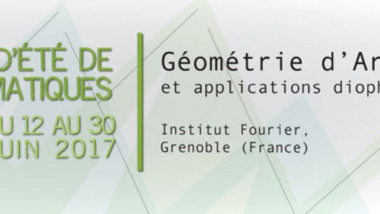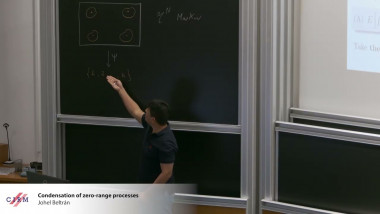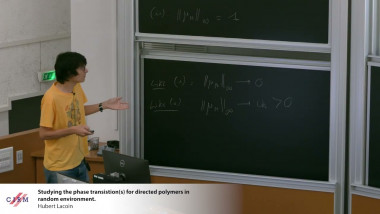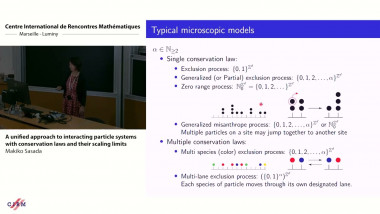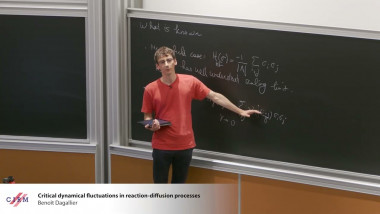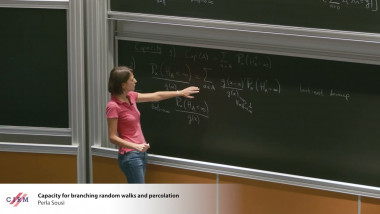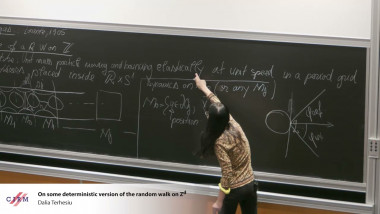Critical dynamical fluctuations in reaction-diffusion processes
We consider a one-dimensional microscopic reaction-diffusion process obtained as a superposition of a Glauber and a Kawasaki dynamics. The density of particles is known to evolve in a diffusive time-scale, according to a reaction-diffusion equation. This equation has fixed points corresponding to values of the total mass for which the reaction term vanishes. We are interested in density fluctuations around such fixed points when a dynamical phase transition takes place. That is, we work with models with non-linear reaction terms where, as a suitable parameter is varied, the reaction term has a unique stable fixed point that loses its stability. We then consider fluctuations precisely at the critical point, i.e. when stability is lost. We show that critical density fluctuations are non-gaussian, evolve on a longer time-scale and identify their scaling limit. More precisely, we show that there is a single slow observable, the total number of particles, that follows a one-dimensional non-linear SDE under non-Gaussian space rescaling. Other Fourier modes are instead proven to remain fast and Gaussian by proving convergence, in finite dimensional distributions, to an explicit Gaussian limit. The proof relies on a decoupling of slow and fast modes involving in particular a relative entropy argument. Major technical difficulties include the fact that local equilibrium does not hold due to the non-linearity, and proving replacement estimates on diverging time intervals due to critical slowdown. The talk is based on the joint work [1] with Claudio Landim.



